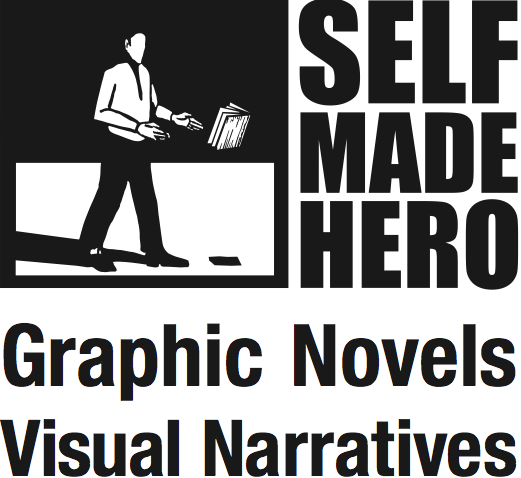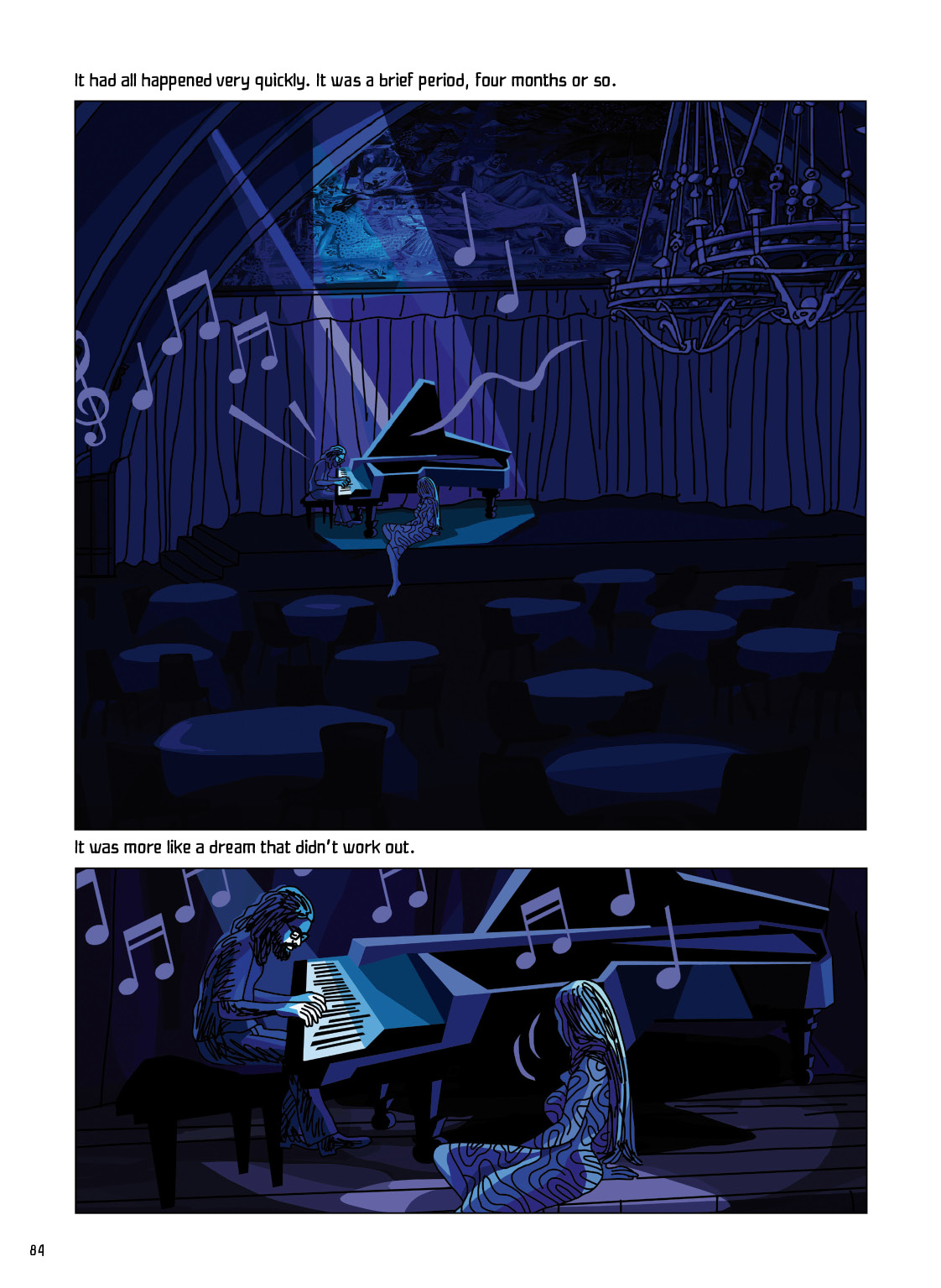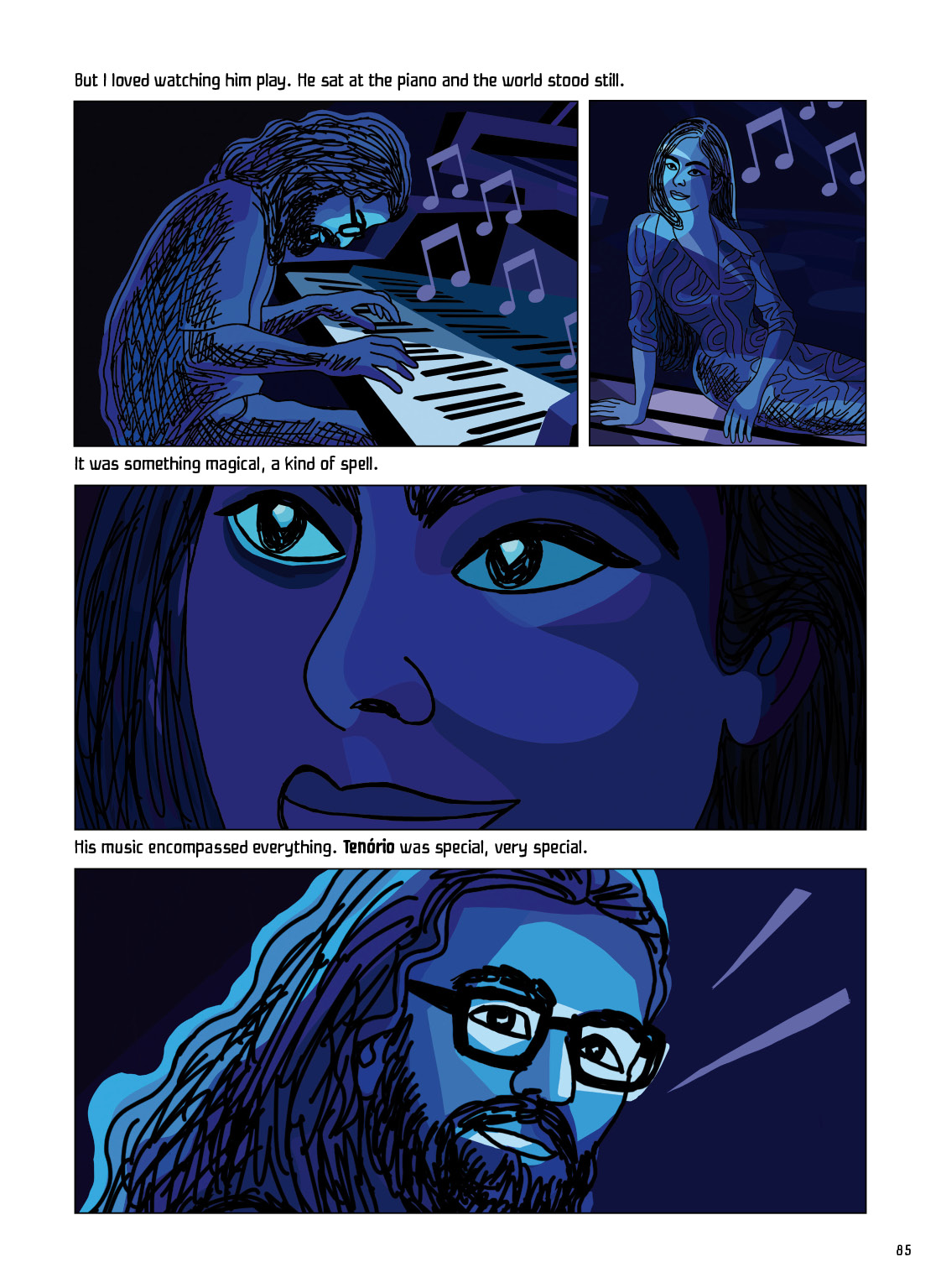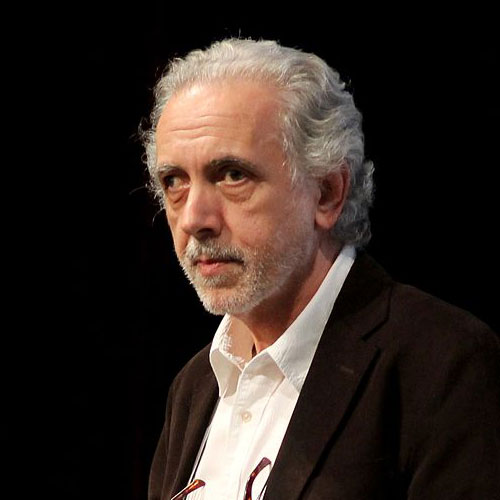They Shot the Piano Player: A Graphic Novel
Words by Fernando Trueba
Art by Javier Mariscal
Hardback, 256 pp, $34.99
An investigation and celebration of the origins of the world-renowned Latino musical samba-jazz movement Bossa Nova, They Shot the Piano Player captures a fleeting time bursting with creative freedom at a turning-point in Latin American history in the ’60s and ’70s, before the continent was riven by totalitarian regimes. Francisco Tenório Cerqueira Júnior, born in Rio de Janeiro, was one of the most recognized musicians of the samba-jazz movement. At 3 a.m. on 18 March 1976, after giving a concert at the Gran Rex in Buenos Aires, the 34-year-old pianist went out to the local corner shop to get some provisions. He was never seen again.
What happened that night? This is the question that moves the narrator of this documentary graphic novel to initiate an investigation into the fateful events that led to the death of a musician destined to change the course of Brazilian music forever.
What happened that night? This is the question that moves the narrator of this documentary graphic novel to initiate an investigation into the fateful events that led to the death of a musician destined to change the course of Brazilian music forever.
Fernando Trueba
Fernando Trueba is a multi-award-winning writer, director and producer, with a career spanning more than three decades in film, television, documentaries, theatre and music. Belle Epoque, starring Penelope Cruz, won both the Oscar and BAFTA for Foreign Language Film. Trueba's Latin jazz documentary Calle 54 saw the birth of his collaboration and friendship with Javier Mariscal. In the concert film Blanco Y Negro, he brought together Cuban-born musician Bebo Valdes and Spanish flamenco star Diego 'El Cigala', winning the Latin Grammy Award for Best Long Form Music Video. His documentary filmed in Brazil, El Milagro De Candeal, won two Goya awards. El Ano de Las Luces also won a Goya, as well as the Silver Bear Award at the Berlin Film Festival. Trueba's published works include a dictionary of cinema. He began his career as the film critic at leading Spanish newspaper El Pais.
Javier Mariscal
Javier Mariscal is an artist and designer who works in multiple fields, including illustration, graphics, comic books, paintings, animation, interiors, product design, furniture and web design. In 1979, he created the Bar Cel Ona (bar, sky, wave) logo for his adoptive city of Barcelona, a powerful and accessible piece of graphic communication that won him instant acclaim. He is the creator of Cobi, the merchandise-friendly mascot of the 1992 Barcelona Olympics, and Twipsy, a character designed for the Hanover 2000 Expo that later starred in his own animated TV series. The Valencia-born designer opened Estudio Mariscal in Barcelona in 1989, winning multiple commissions across a range of disciplines. Javier Mariscal was the subject of a major retrospective at London's Design Museum in 2009. An exhibition of his work, Mariscal A La Pedrera, opened in September 2010 at the Pedrera, one of Gaudi's most famous buildings, in Barcelona.
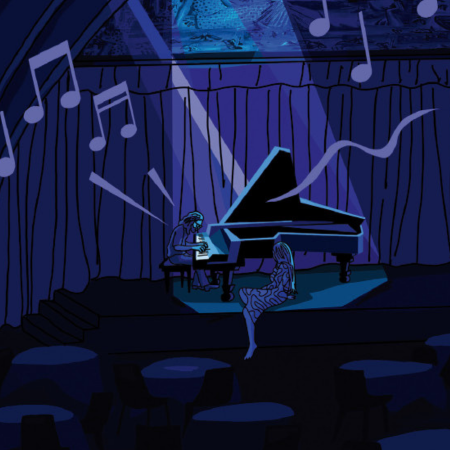
Reviews
"They Shot the Piano Player is a graphic novel to rival Maus or Persepolis. Its story is a reminder of recent history which, though only half a century old, seems very yesteryear."
— The Indiependent
"This graphic novel will appeal to lovers of true crime as well as music."
— Booklist
"Well, simply put, it’s glorious… It doesn’t matter whether you’re a Bossa Nova fan per se; all you need to know is that Trueba and Mariscal have knocked it out of the park all over again."
— Bookmunch
They Shot the Piano Player is "spectacularly drawn, particularly the night-scapes, and related with candour — it is a page-turner as the narrator closes in on the truth about the fatal night."
— Morning Star
"It’s a loving biography, a mystery and a memorial."
— Slings & Arrows
"The best graphic biographies don’t just document. They inspire the reader to want to investigate and learn more about their subjects. This is certainly the case with They Shot the Piano Player which explores one specific case but leaves its audience with, no doubt, more questions to ask about the wider picture."
— Broken Frontier

